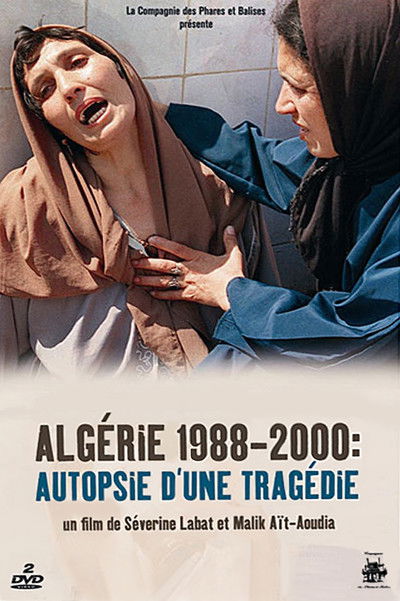Algérie 1988-2000 : Autopsie d'une tragédie
Genres
Documentary
OverView
Others
Budget
$--
Revenue
$--
Status
Released
Original Language
French
Runtime
0 mins
Rating
10/10
Release Date
26 September 2005
Country
France


Documentary
Budget
$--
Revenue
$--
Status
Released
Original Language
French
Runtime
0 mins
Rating
10/10
Release Date
26 September 2005
Country
France